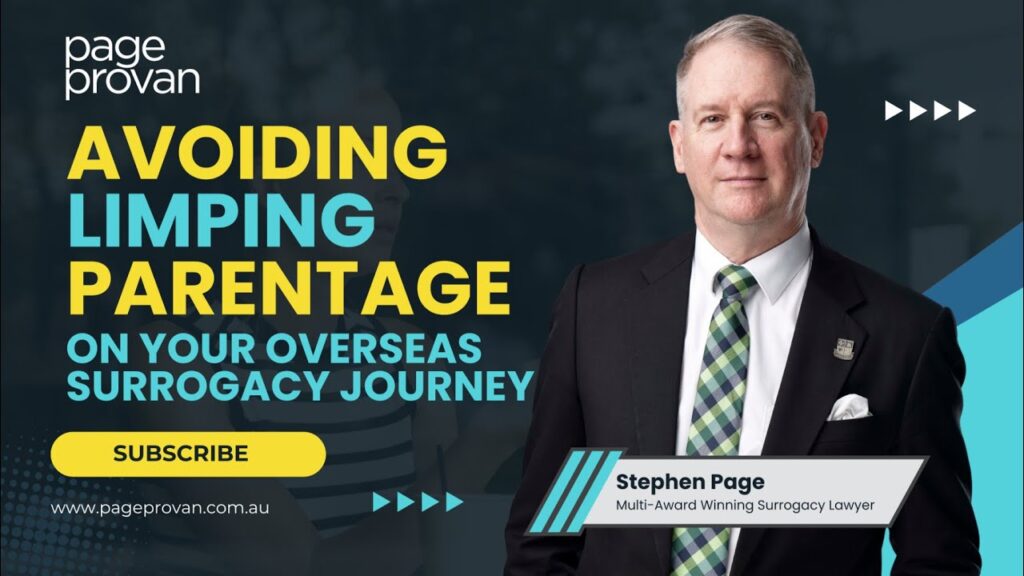Hague: recognition of foreign judgments comes first
Last week, the Hague Permanent Bureau took the first definitive steps towards a Hague Convention on the recognition of parental status and surrogacy. It did so by saying that what was important was recognition of judgments, so that children’s interests were put front and centre. It is likely that the process of evolving towards a convention will be over several years.
This approach is entirely consistent with the approach that I and my co-author Bruce Hale took with our paper adopted by the 420,000 strong American Bar Association: what was important was that children’s rights be protected, by recognising court orders made overseas. We were also concerned that single and LGBTI parents in particular would likely be discriminated against under an adoption model for surrogacy, as we have seen with how some countries have acted with the Hague Intercountry Adoption Convention, for example.
This is what the working group appointed to suggest what ought to be done concluded:
” The Group acknowledged the diversity of approaches of States with respect to the recognition of foreign public documents such as birth certificates and voluntary acknowledgments of parentage, and noted there is more congruity of practice with respect to the recognition of foreign judicial decisions.
The Group was of the view that it would be useful to have further discussions on the feasibility of unifying the rules on the recognition of foreign public acts and judicial decisions…and at this stage consideration of the feasibility should focus primarily on recognition.” (emphasis added)
This is part of what the American Bar Association adopted:
“Resolved:
That the American Bar Association urges the United States Department of State to seek the following in negotiations concerning a possible Hague Convention on private international law concerning children, including international surrogacy arrangements:
a. That the Convention should focus on the conflict of laws and comity problems inherent in international citizenship and parentage proceedings and that any such collective international approach should allow for cross-border recognition of parentage judgments so that the parental relationship and citizenship of all children, no matter the circumstance of their birth, will be certain…” (emphasis added)
Here is part of what was in the paper, which was adopted by the American Bar Association:
“While the Sponsors generally supports the notion of an international Convention concerning children, including international surrogacy arrangements, the Sponsors feel that the appropriate focus of such a Convention should be on the conflict of law and comity issues that arise in international surrogacy rather than on regulating the industry itself and individual surrogacy arrangements between private parties.” (emphasis added)
An explanation about The Hague
The Hague is a city in the Netherlands, and with Amsterdam, is one of the capital cities there. Since before World War II a group of nations have met there to discuss private international law issues. Private international law is the body of laws, including conventions and treaties, concerning cross-border issues with respect to private relationships.
The body that meets at The Hague is therefore called The Hague Conference on Private International law. Between when the various countries meet to discuss issues, the Hague Conference is run by the Hague Permanent Bureau.
Many Conventions have been signed at The Hague, which are therefore called Hague Conventions. The best known is the 1980 International Child Abduction Convention, which in Australia featured in the Italian Four Sisters case, and another well known Convention is the Hague Intercountry Adoption Convention.
There have been discussions at The Hague since at least 2011 that may be there ought to be a Convention covering private international law concerning children, including to do with international surrogacy arrangements. Since 2011/2012 I have worked with my colleague Bruce Hale from Boston, under the leadership of American Bar Association Artificial Reproductive Treatment Committee chairs Steve Snyder and then Rich Vaughn, and with the assistance of many other lawyers, in coming up with a proposal of what form the Convention should take.












